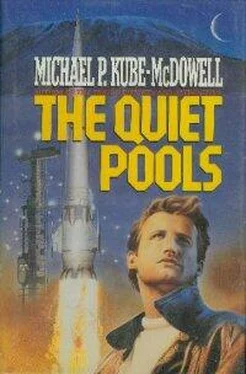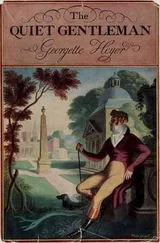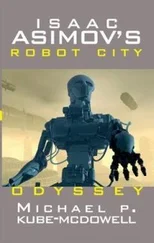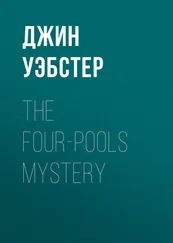His one “contemporary” number, the gloomy AIDS lament “Walls Between,” was marred by a memory lapse that stretched out painfully until someone called out the next line from the audience. By that point, Papa Wonders was looking at his watch with an expression that did not promise any return invitations for the man struggling on stage.
And then something curious happened to that man, a kind of transformation. It was as though, knowing how poorly he had done, he suddenly felt no pressure. And he raised his head. He looked out into the room, looked around the audience. And he spoke to them the way Christopher would.
“One more and we’re out,” he said. “This is the song I really came here to do. I wrote the chorus almost six years ago, when I was still living on the Coast and hearing a lot from my father-none of it good—about the Diaspora Project. The funny thing was, even though I wrote this song for him, he still hasn’t heard it. It never seemed quite right or quite good enough. Actually, it turns out, the problem was it wasn’t quite finished. It wasn’t until last night that I realized there was a verse missing. I like it better now. My father wouldn’t, which means that maybe you will.”
He began to play, simple chords, brisk and rhythmic, a cross between sea chantey and Irish folk song. The preamble was short, and for the first time that night, when he opened his mouth it was to sing to them, not for them:
I was sixteen years and I knew no fears
When three ships’ keels were laid
And from the words of Captain Lee
Sweet promises were made
Come with me, you’ll be flying free
Living in the stars
If you cast your stake and say you’ll take
The caravan to Antares
Christopher sang the first few verses with an innocence, his voice shining with the bright joy of the song’s narrator, strong with the narrator’s bold confidence as his youthful dreams come true. Christopher sang of a glorious sailing, a true cause, a steady course, and they sang the refrain with him:
Look at me, I’m flying free
Living in the stars
Cast my stake and said I’d take
The caravan to Antares
As quickly as that, the audience—or at least the sizable portion from AT-Houston—was with him, caught up at last by something that touched them in a familiar place. Though the song was a romance in a fictional world, they saw, or thought they did, past the disguise. Click-click-click. He’s singing about us. He’s talking about me.
Keith watched with clinical detachment, knowing the turn which was to come. And as Christopher’s voice became harder and the verses darker, the narrator battered by disappointments, disillusionment, the faces of those around him began to be etched by resistance, even anger.
They don’t want to hear it , Keith thought. You can’t tell them that it won’t all be wonderful .
When Christopher sang of a ship destroyed between the stars, he struck them with a body blow. When he sang of hopes dashed by worlds too harsh and too alien, of the survivors wearily searching for a place that might be home, the chorus they had so eagerly taken up had turned on them, its words now cynical and mocking.
My son was born on a sunless morn
In the silent depths of space
What his life will be I can hardly see
In this hellish prison place
Twelve worlds we’ve logged and the best was fogged
With a filthy poison stew
There’s a year to go but today we’ll know
If the next world on might do
Look at me, I’m flying free
Living in the stars
And I curse the day that I said I’d join
This caravan to Antares
The solo riffs that followed had an anger that matched the words. Christopher wrung from the instrument and himself a fury of sound, all ringing strings and hammered notes. He forgot the audience once more, but this time they were with him, whether caught by disbelief or pain.
One crashing chord, and there was a moment’s silence. When Christopher began again, the instrument muted, his voice cleansed of the anger, once more soft with innocence, strong with confidence, as he sang the new verse, the son’s verse:
My father died on Alcestis Five
My mother stayed on Pern
Where we left a throng four hundred strong
Its mysteries to learn
And the Nina’s docked in Kepler’s lock
Round the icy planet Hoth
They’ll warm the air and they’ll seed the ground
And build another Earth
But there’s worlds to know and it’s time to go
I was born to roam the stars
And my crew has sworn that we’ll carry on
With the caravan to Antares
With those few words, he gave them back their illusion, gave the struggle a purpose. And they threw their emotional arms around him and thanked him with an accolade that threatened to lift the slats from the club’s wooden rafters. Keith saw tears on more than one cheek, felt the tightness in his own throat as he clapped and cheered.
Christopher himself seemed drained, overwhelmed. He stood and lifted his hand to them, but his expression was pained, and he did not stay long on stage. The trip down the aisle to the warm-up room had the smell of a panicky flight.
Keith slipped out into the aisle and followed him inside.
“Terrific,” he said, clapping his friend on the shoulder. “You really got them with that one. A good finish.”
“It’s a lie,” Christopher said, slumping in a chair.
“What? Listen, they’re still clapping. You’ve gotta go back out.”
“You don’t understand ,” Christopher exploded. “It was completely cynical. I don’t believe a word of it. I thought they’d cut my throat if I did it the way I always do. I wanted it in the library. I wanted them to like me.”
“Listen. They do,” Keith said. “Go on back out.”
“I don’t have anything more,” he said hoarsely. “Tell Bill.”
“Jesus, Chris—are you sure?”
“I just want to be alone. Can you be a friend and keep people out for a few minutes?”
“Well—I guess,” Keith said uncertainly, knitting his brows in puzzlement. “Chris—”
“Please. Just get out.”
Keith frowned, shrugged, and slipped out through the door. The lights were already coming up, the audience getting up and milling. He lingered in front of the door, winking and waving to friends as they passed by in the throng, catching a thumbs-up from Greg, who was hunched over the replay screen. Keith decided he must look official: Someone asked if he could see the guitar; someone else wanted to know if “Caravan to Antares” had been published. Both were disappointed that the answer was no.
Then he saw a face in the crowd that he had not noticed before, a face he had not expected to see.
“Good evening, Mr. Keith,” said Tidwell when he had drawn close. “That last song was recorded?”
“As far as I know.”
“Have a copy sent to Edkins in Culture. The young man is inside?” Tidwell asked, nodding in the direction of the door.
“Yes.”
“I want to talk to him.”
“Can you give him a minute? Chris is a bit wrung out.”
“I understand that.”
Keith hesitated. “He’s an archie, in Building 16.”
“So I understand. Is there a point?”
“You can catch him at your convenience—tomorrow morning, say—”
“Thank you. I would prefer to talk to Mr. McCutcheon now.”
Keith swallowed, nodded reluctantly, and stepped aside. “He doesn’t know who you are,” he added.
“Then I’ll tell him,” Tidwell said, and smiled a tight smile. “Then he will know whom to blame for the intrusion.”
Читать дальше

![Nick Cracknell - The Quiet Apocalypse [= Island Zero]](/books/28041/nick-cracknell-the-quiet-apocalypse-island-zero-thumb.webp)










